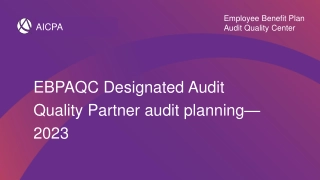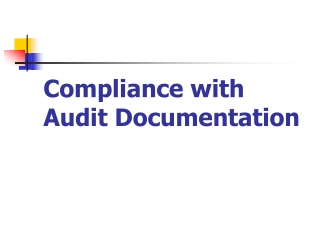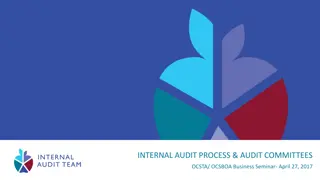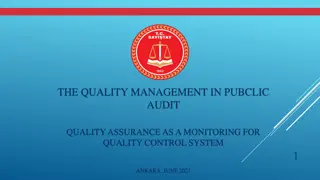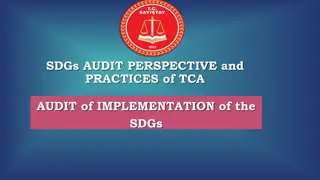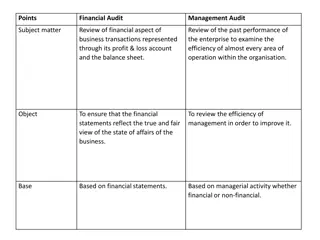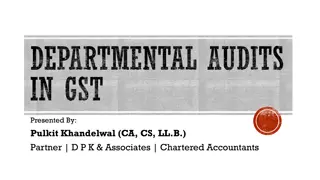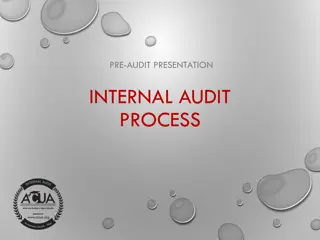
Importance of HR Audits in Organizations
Discover the significance of HR audits in evaluating HR practices, policies, and procedures to identify gaps and enhance organizational effectiveness. Learn about the main purposes of HR audits, such as compliance, employee retention, and workforce planning.
Download Presentation

Please find below an Image/Link to download the presentation.
The content on the website is provided AS IS for your information and personal use only. It may not be sold, licensed, or shared on other websites without obtaining consent from the author. If you encounter any issues during the download, it is possible that the publisher has removed the file from their server.
You are allowed to download the files provided on this website for personal or commercial use, subject to the condition that they are used lawfully. All files are the property of their respective owners.
The content on the website is provided AS IS for your information and personal use only. It may not be sold, licensed, or shared on other websites without obtaining consent from the author.
E N D
Presentation Transcript
An HR audit is a systematic method of investigating the HR department s practices, policies, and procedures. It helps identify gaps in HR practice areas, and HR can prioritize these gaps by identifying ways to improve. Like any other type of business audit, an HR audit also takes place to avoid errors and meet the desired goals. An HR audit can be primarily categorized into two areas: risk mitigation and value creation. Risk mitigation focuses on legal areas and employee-related lawsuits that may get the organization into legal trouble. Value creation, on the other processes to maximize the value of the employees. Organizations may conduct an HR audit via external HR consultants or deploy their own HR department to perform an internal audit hand, focuses on improving HR policies and
The main purpose of HR audit is to identify gaps in HR-related areas and improve them. It helps assess whether the HR practices are benefiting or harming the organization. It also goes beyond the typical hiring process and looks into areas like employee compensation, training, employee retention, employee relations, and other practices that affect employees within an organization. Some of the main purposes of HR audit are: Ensuring compliance and updating regulations to avoid any potential penalties Designing benefits package Staying relevant with the latest employment laws and trends Identify reasons for employee turnover to improve retention Improve processes, procedures, organizational structures, and job descriptions Identify employee grievances and address issues a fair, competitive employee compensation and
Assess the current workforce: Evaluate the number, skills, experience, and performance of the current workforce. Forecast future needs: Anticipate employee turnover and evaluate organizational needs. Analyze the job market: Examine the current job market. Identify gaps: Determine the gap between the current workforce and future needs. Develop company's labor needs with its supply of employees. Monitor and evaluate: Monitor and evaluate the plan. and implement strategies: Balance the

